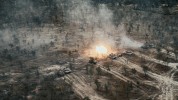Search
Using the filters to the left, click your selection, it will become bold and filter the results, click it again to remove that filter.
The Prussian-German Origins and Application of Mission Command Introduction Part of the problem for any military absorbing or adopting a foreign concept or methodology is that the significance and meaning are consciously or unconsciously filtered organisationally and culturally to become at best a hybrid of the original. Imported ideas can also clash with existing culture, while challenging long-established norms, resulting in compromises that pervert the original intention. The Anglo-American world’s …

Alternative Views on the Nature of the Profession AUTHOR: Phillip Hoglin The term ‘profession of arms’ is relatively common throughout military discourse. However, while it appears frequently in doctrine, speeches, [1] articles and essays, until late 2021 the term was undefined by the Australian Defence Force (ADF). While it is now articulated in doctrine, the ADF’s definition has not yet been distilled for the Australian Army but left instead to notions of abstract intuition developed by individuals …
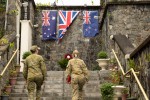
The most powerful tool we have in succeeding in this era of strategic competition is not the weapons we have, nor is it technology. It is the people … Chief of Army LTGEN Simon Stuart LANPAC 2024 Introduction One distinguishing element of a profession that sets it apart from other jobs is a commitment to ethical and moral conduct. The ‘profession of arms’ is like medicine, law and ministry—professionals who share a commitment to practising a role within the ethical bounds of agreed ethical frameworks. …
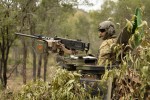
‘I think the greatest gift anyone can give to another is the desire to know, to understand.’ [1] —Louis L’Amour The Australian Army must improve its approach to teaching defence mastery to its junior officers (JOs) to better prepare Army for now and the future. In his keynote address to the 2024 Chief of Army Symposium, Chief of Army (CA) Lieutenant General Simon Stuart introduced his intent for a ‘wholesale, holistic review of our profession’. [2] In this speech, he asked: How do we best weave together …
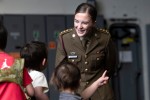
The Conceptual Evolution of the Australian Army’s and Australian Defence Force’s Operational and Tactical Planning Processes In the opening chapter of his seminal 1957 book The Soldier and the State , Samuel Huntington enduringly defined what makes the military a profession rather than a trade, vocation or job. Huntington defined a profession as uniquely manifesting three aspects: expertise, responsibility, and corporateness. [1] In the case of the military, the foremost aspect, he asserted, is: a central …
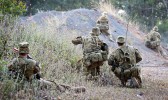
Introduction The Chief of Army’s directive to review the state of the Army profession divides the task into a review of Army’s jurisdiction, expertise, and self-regulation. One area of expertise that the Army prides itself on, and which tends at times to set it apart from other services, is in the area of tactical and operational planning. [1] Planning and decision-making is not something that is peculiar to the Army or to the military; planning is an activity that is a normal part of everyday living. …
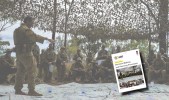
The principle of mission command, though not described as such, was practised by naval forces for centuries, and continues to be into the 21st century. [1] Exercise of command varies greatly depending on the context, and is highly dependent on the mix of organisational culture and enabling technology present. Since the development of radar, and reinforced by the advent of combat data systems and guided weapons, the volume of information available to a naval commander, and the speed with which command …
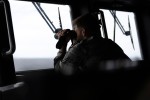
There is no more challenging role in the Australian Defence Force (ADF) than to command in war. ADF-P-0 Command [1] Command is not easy. In peace or war, command is one of the most difficult activities we do as military professionals. Command in the Australian Defence Force (ADF) is unique—very few organisations can knowingly order subordinates into life-threatening situations. It takes a great deal of training, education and experience to be ready to command, and then the execution of command takes …
The Utility of Mission Command within Domestic Security and Response Operations The land domain is where people live, where decision makers reside and where human, physical and technical access to all other domains begins. It is where military action intersects with populations and audiences. It encompasses decisive terrain and hosts critical infrastructure. [1] Domestic operations have unique characteristics and considerations. [2] Introduction Associate Professor David Stahel’s ‘ Auftragstaktik : The …
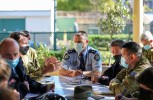
This paper draws on material covered in John Blaxland, The Australian Army from Whitlam to Howard (CUP, 2014). [1] Soldiers of today’s Australian Army draw on the inspiration of their predecessors. Following British tactics and procedures for the first half of the 20th century and beyond, Australian soldiers have fought at the direction of their government in conflicts and places ranging from the Anglo-Boer War in South Africa from 1899 to 1902, to Gallipoli in 1915, Beersheba in 1917 and Amiens in 1918, …
